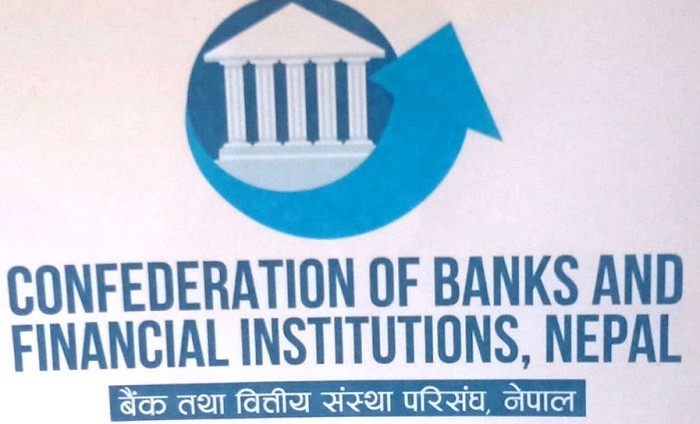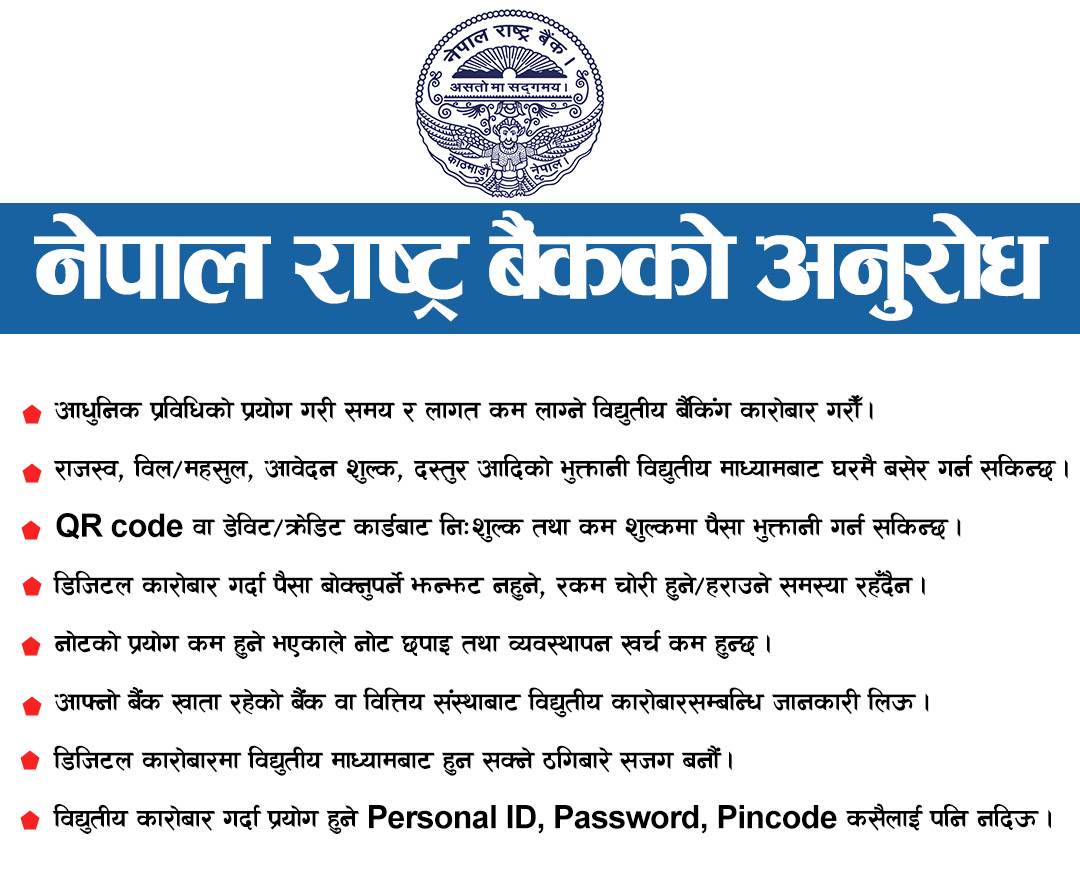The implementation of some provisions in the monetary policy is challenging: CBIFIN
Jul Wed 2022 02:40:14
1222 views

Kathmandu. Nepal Rastra Bank has released the monetary policy for the financial year 2079/80. According to the Bank and Financial Confederation, the monetary policy has adopted timely policies to bring the declining economy back to the rhythm.
The confederation has announced its views on the monetary policy and said that the monetary policy issued with the goal of building a self-sufficient economy with special emphasis on increasing production and productivity is overall positive. In addition, Cibifin is of the opinion that the achievement of the goals set by the monetary policy and the implementation of some of the measures adopted for the improvement of the current economy will be challenging.
In order to keep the country's current uneasy economic situation smooth, permanent and dynamic, it has been stated that many important issues presented by CBIFIN have been addressed in the monetary policy issued in the context of the general interest, expectation and eagerness regarding the monetary tools to be adopted by the monetary policy.
Among the suggestions suggested directly and in writing by Cibifin, it is arranged that by classifying the loans flowing from the bank and financial sector, different interest rates will be maintained for the loans going to the productive sector and trade, the development of the productive sector and the loans will be flowed to the productive sector and special priority will be given to export promotion.
In addition, coordination will be made this year for the provision of exemptions for various services and facilities based on evidence that remittances have been brought into the country through formal means, necessary amendments will be made to the Foreign Investment and Foreign Credit Management Regulations, 2078 to further automate the flow of foreign investment, to widen the scope of remittance flow entering Nepal. There are provisions such as the existing arrangements regarding remittances will be reviewed, bank accounts will be made mandatory for Nepalis going abroad to exchange foreign currency.
Similarly, increase in access to credit for small, domestic, micro and medium enterprises, continuation of re-loaning in productive sectors including agriculture, export and recovery from the Kovid epidemic, continuation of the system where bonds can be counted as deposits, merger of banks and financial institutions and share trading Cibifin is confident that the inclusion of Cibifin's suggestions, such as the abolition of withholding regulations, merger opportunities and exemptions for banks and financial institutions, review of credit centralization, and emphasis on increasing financial scope by increasing digital literacy, will provide significant support for the recovery of the shrinking economy.
Due to the negative impact on Nepal's economy due to various developments in the external sector, it is posing a challenge to increase investment in the productive sector to maintain economic stability, to keep the price increase within the limit, to keep the foreign currency reserves stable, to maintain the balance of payments, to replace the declining imports due to the weak production system.







